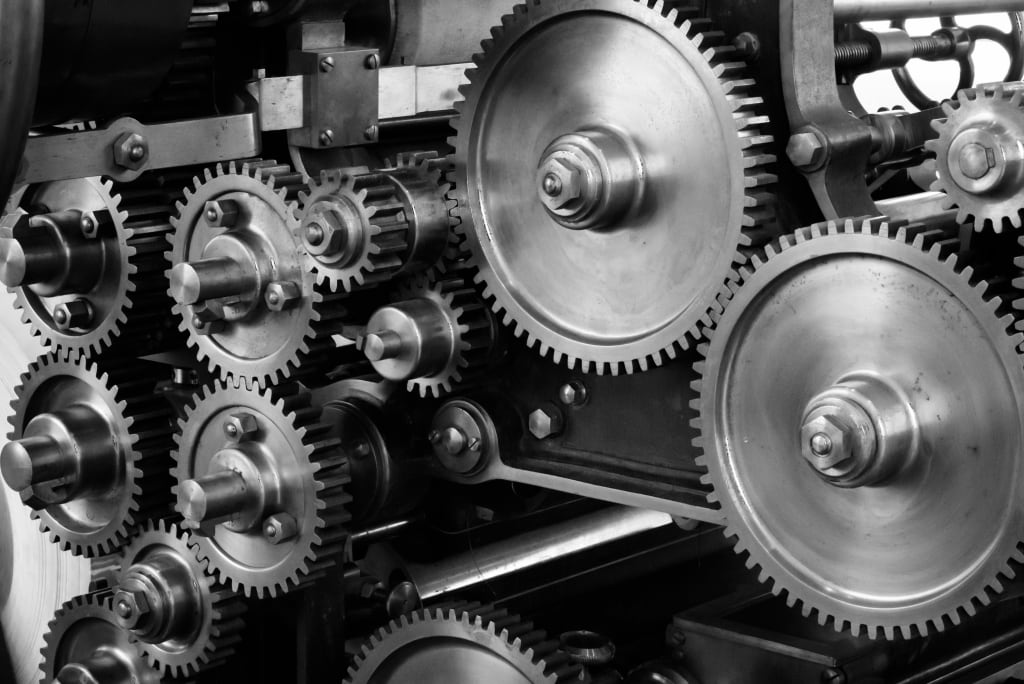The Evolution of Mechanical Engineering
From Ancient Innovations to Modern Marvels

Introduction:
Mechanical engineering has been the mainspring of human progress, leaving its mark on almost every facet of life. Be it the easiest tools or the most complex machinery, it is through mechanical engineering that technological advancement got its impetus in history and continues to chart the future course.
Ancient Innovations:
The roots of mechanical engineering trace back to ancient civilizations, where the basic principles of mechanics were first probed—with the use of levers and inclined planes by the Egyptians in building the pyramids and with complex gears and automata by the Greeks. The foundations of what is now mechanical engineering as a subject discipline were laid by Archimedes, a Greek mathematician who worked on levers, pulleys, and buoyancy. It was representative of the potential of mechanical devices through the works of Hero of Alexandria, including the invention of the aeolipile, a sort of primitive steam engine.
Middle Ages and Renaissance:
The Middle Ages brought significant change to mechanical engineering since the invention of waterwheels and windmills was carried out to mill grains and pump water. Interest in science and engineering renewed in the Renaissance; this was climaxed by Leonarda da Vinci. He made detailed drawings and designs for mechanisms, including flying machines and hydraulic pumps, which predated modern engineering principles.
The Industrial Revolution:
The Industrial Revolution in the 18th century was very important for mechanical engineering. The invention of the steam engine by James Watt provided the means of revolutionizing transport and manufacturing, hence mechanizing industry. It was during this period that modern mechanical engineering as a proper discipline was born, with the formation of professional societies like the American Society of Mechanical Engineers in 1880.
Inventions like the spinning jenny and power looms were cardinal to this age of history. Publications by Eli Whitney put interchangeability into mass production, increasing reliability and economy.
20th Century Advancements:
In the field of mechanical engineering itself, there has been tremendous growth in the 20th century, particularly in the automobile and aerospace sectors. The introduction of the assembly line by Henry Ford in 1913 gave a new dimension to automobile manufacture and made cars an affordable commodity for the common man. In aeronautics and astronautics, after the Wright brothers' successful flight in 1903, growth has been rapid in this branch of technology.
The invention of the CAD, or Computer-Aided Design, and CAM, or Computer-Aided Manufacturing, in the second half of the century changed everything, and engineers could make very complex designs with accuracy unrivaled by any other time in history. These tools gave mechanical engineering better efficiency and capability for developing intricate parts and systems.
Mechanical Engineering Today:
Today, mechanical engineering stands at the forefront of many technological developments. Attention is shifted to sustainability engineering, where engineers are working on renewable energy solutions, designing and developing wind turbines, solar panels, and electric vehicles. The introduction of robotics and automation in manufacturing has introduced CNC machines and robotic arms into the process, making it much more precise and productive.
State-of-the-art research in nanotechnology, biomechanics, and advanced materials is further intensifying the reach of technologies. Mechanical engineers are working on everything from nano-sized machines to biomechanical implants that will improve health, confront the challenges of energy resources, and advance materials science.
The Future of Mechanical Engineering:
The interdisciplinary approach is going to be the future of mechanical engineering. One such direction involves the junction of mechanical engineering with electrical engineering, computer science, and biology in some areas, leading to many radical innovations. For example, smart material and system development that can respond against environmentally induced changes is one such directive.
Large problems, however, are confronting the field. In terms of environmental concerns and the need for sustainability solutions, engineers of the future will be under pressure to come up with materials and processes that have a minimal impact on the environment. Continuing further, artificial intelligence and machine learning will further evolve and revolutionize the design and manufacturing process to strive towards efficiency and adaptiveness.
Conclusion:
From the ingenuity of mechanisms devised by ancient civilizations to the sophisticated technologies developed today, it is mechanical engineering that has most shaped human history. Its continuing evolution holds much promise for exciting new advances and solutions to some of the world's great challenges. Moving into the future, it will be the ingenuity and innovation of mechanical engineers that will continue to drive progress and improve our quality of life.
About the Creator
Kaniesh N
I am a YouTuber focused on mechanical engineering. With a diploma in the field, I create educational videos on topics from basics to advanced techniques. Check out my channel TechTorqueNK www.youtube.com/@TechTorqueNK
Enjoyed the story? Support the Creator.
Subscribe for free to receive all their stories in your feed. You could also pledge your support or give them a one-off tip, letting them know you appreciate their work.






Comments
There are no comments for this story
Be the first to respond and start the conversation.